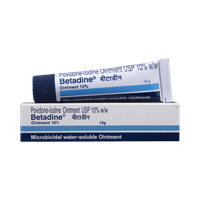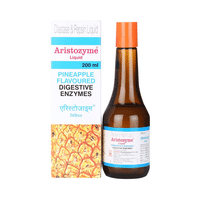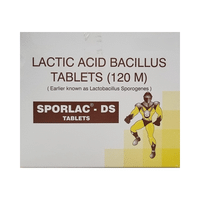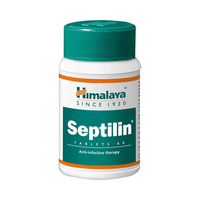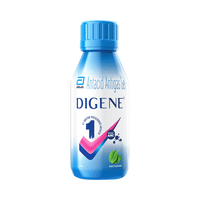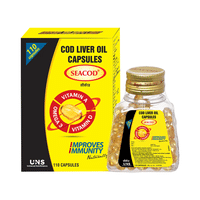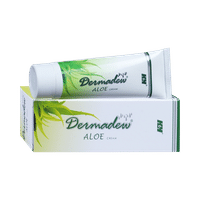Rs.124for 1 bottle(s) (30 ml Dry Syrup each)
food interaction for Cisma CV
alcohol interaction for Cisma CV
pregnancy interaction for Cisma CV
lactation interaction for Cisma CV
food
alcohol
pregnancy
lactation
Cisma CV Dry Syrup may be taken with or without food, but it is better to take it at a fixed time.
None
None
CAUTION
It is not known whether it is safe to consume alcohol with Cisma CV Dry Syrup. Please consult your doctor.
CONSULT YOUR DOCTOR
Cisma CV Dry Syrup may be unsafe to use during pregnancy. Although there are limited studies in humans, animal studies have shown harmful effects on the developing baby. Your doctor will weigh the benefits and any potential risks before prescribing it to you. Please consult your doctor.
CONSULT YOUR DOCTOR
Information regarding the use of Cisma CV Dry Syrup during breastfeeding is not available. Please consult your doctor.
CONSULT YOUR DOCTOR
SALT INFORMATION FOR Cisma CV
Cefpodoxime Proxetil(100mg)
Uses
Cefpodoxime Proxetil is used in the treatment of bacterial infections.
How it works
Cefpodoxime Proxetil is an antibiotic. It kills the bacteria by preventing them from forming the bacterial protective covering (cell wall) which is needed for them to survive.
Common side effects
Rash, Nausea, Diarrhea, Vomiting, Headache, Abdominal pain, Vaginal infection, Anaphylactic reaction, Peripheral edema, Weight gain, Muscle pain, Abnormal dreams, Impaired concentration, Confusion, Nightmares, Paresthesia (tingling or pricking sensation)
Clavulanic Acid(62.5mg)
Uses
Clavulanic Acid is used in the treatment of bacterial infections.
How it works
Clavulanic Acid is a beta-lactamase inhibitor. It works by blocking an enzyme (beta lactamase) produced by bacteria to inactivate antibiotics. This reduces resistance and enhances the activity of antibiotics against bacteria. It does not have any antibacterial activity of its own.
Common side effects
No common side effects seen
SUBSTITUTES FOR Cisma CV
54 Substitutes
54 Substitutes
Sorted By
 Rs. 181.50pay 35% more per ml of Dry Syrup
Rs. 181.50pay 35% more per ml of Dry Syrup Rs. 105.30save 18% more per ml of Dry Syrup
Rs. 105.30save 18% more per ml of Dry Syrup Rs. 107.50save 16% more per ml of Dry Syrup
Rs. 107.50save 16% more per ml of Dry Syrup Rs. 138.50pay 8% more per ml of Dry Syrup
Rs. 138.50pay 8% more per ml of Dry Syrup Rs. 149.50pay 17% more per ml of Dry Syrup
Rs. 149.50pay 17% more per ml of Dry Syrup
Expert advice FOR Cisma CV
- Your doctor has prescribed Cefpodoxime Proxetil to cure your infection and improve your symptoms.
- Do not skip any doses and finish the full course of treatment even if you feel better. Stopping it early may make the infection harder to treat.
- Discontinue Cefpodoxime Proxetil and inform your doctor immediately if you get a rash, itchy skin, swelling of face and mouth, or have difficulty in breathing.
- Diarrhea may occur as a side effect but should stop when your course is complete. Inform your doctor if it does not stop or if you find blood in your stools.
- Avoid consuming alcohol while taking Cefpodoxime Proxetil as it may cause increased side effects.
Frequently asked questions FOR Cisma CV
Cefpodoxime Proxetil
Q. Is Cefpodoxime Proxetil safe to use?
Cefpodoxime Proxetil is safe to use at the prescribed dose for prescribed duration as advised by the doctor. Patients should follow the advice of the doctor regarding its use.
Q. Can the use of Cefpodoxime Proxetil cause diarrhea?
Yes, the use of Cefpodoxime Proxetil can cause diarrhea. Cefpodoxime Proxetil is an antibiotic which kills the harmful bacteria. However, it also affects the helpful bacteria in your stomach or intestine and causes diarrhea. If diarrhea persists, talk to your doctor about it.
Q. Is Cefpodoxime Proxetil an antibiotic?
Yes, Cefpodoxime Proxetil is an antibiotic, it belongs to a group of antibiotics known as cephalosporins.
Clavulanic Acid
Q. What is Clavulanic Acid?
Clavulanic Acid is a beta-lactamase inhibitor. It does not exert a clinically useful antibacterial effect on its own. It is used in combination with other antibiotics to increase their effect.
Q. Why is Clavulanic Acid used with amoxicillin?
Amoxicillin is a semisynthetic penicillin (beta-lactam antibiotic) that is easily broken down by beta-lactamase enzyme produced by some bacteria. Clavulanic Acid inactivates the beta-lactamase enzymes thereby preventing the breakdown of amoxicillin.













